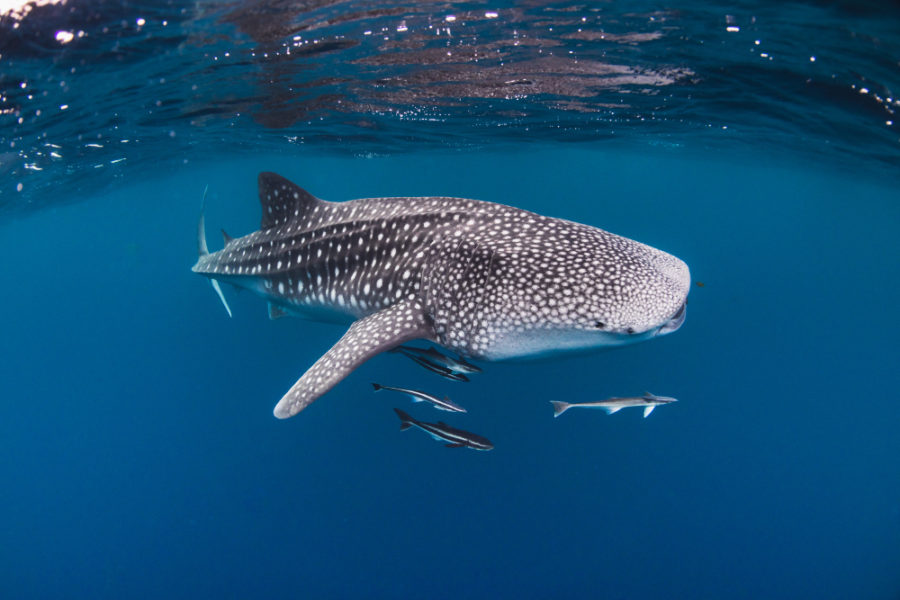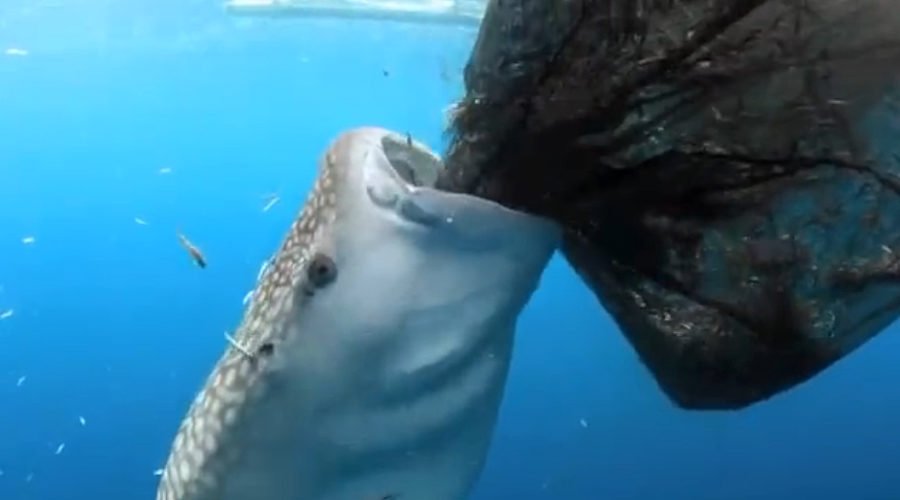Whale shark dethrones kodiak bear as world’s largest omnivore

Marine scientists have always thought whale sharks were carnivores, with a diet of plankton, shrimp, and small fish.
But being filter-feeders means any small debris floating in the water have the potential to become a meal, which is what has happened with the whale shark population at Western Australia’s Ningaloo Reef.
“Something like a whale shark, which swims through the water with its mouth open, is going to ingest a lot of different things,” says Dr Andy Revill, CSIRO Oceans and Atmosphere organic biogeochemist.
In this case, the giant fish species (Rhincodon typus) have been found to be ingesting sargassum, a type of brown seaweed which breaks off the reef into the water.
The discovery was made when researchers analysed biopsy samples from whale sharks at Ningaloo Reef, comparing amino acids and fatty acids found in possible food sources.
The researchers also caught whale shark poo with a net and analysed it.

“So, the vision we have of whale sharks coming to Ningaloo just to feast on these little krill is only half the story,” says Dr Mark Meekan, Australian Institute of Marine Science fish biologist.
“We think that over evolutionary time, whale sharks have evolved the ability to digest some of this sargassum that’s going into their guts.
“This causes us to rethink everything we thought we knew about what whale sharks eat. And, in fact, what they’re doing out in the open ocean.”
The finding makes whale sharks – which can grow to up to 18m in length – the world’s largest omnivore, a title previously held by the Kodiak bear (Ursus arctos middendorffi), a unique subspecies of brown bear endemic to the Kodiak Archipelago south of Alaska.


